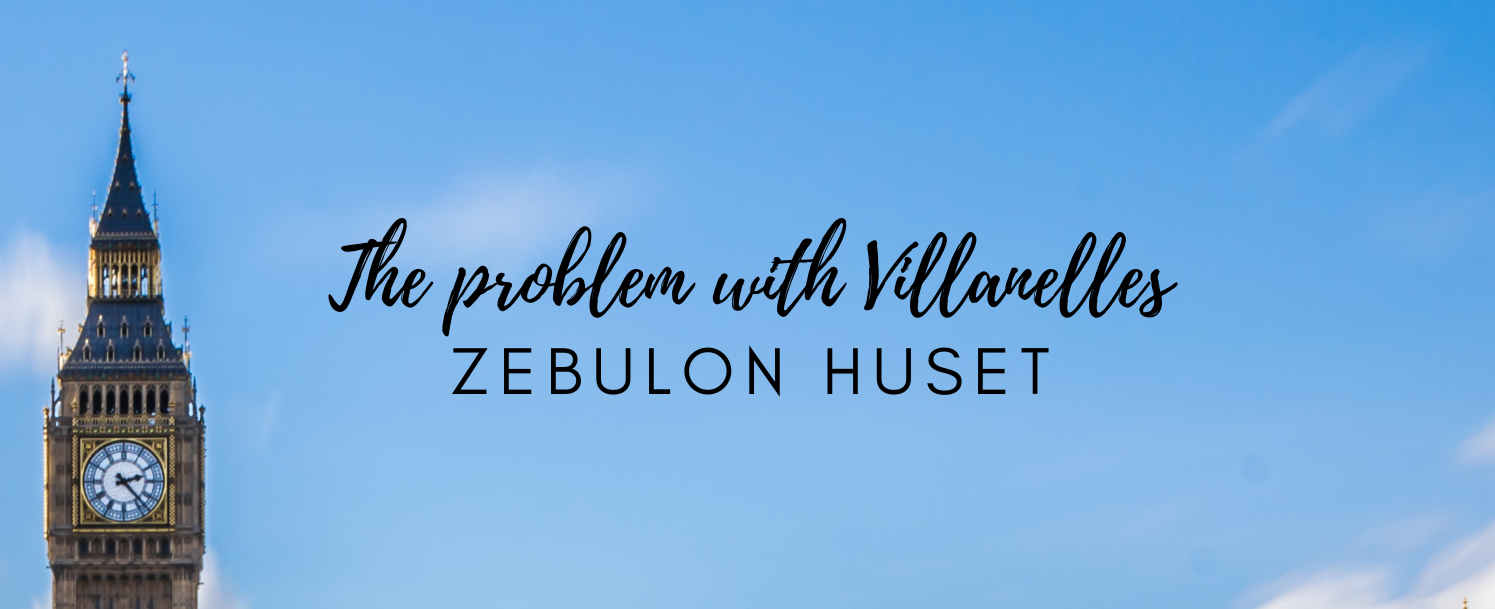The problem with Villanelles by Zebulon Huset

The problem with Villanelles
is the repetition of sound,
like alarm clock beeps—
depressing, as the day’s crowned
with sounds bound
to meanings that repeat
the repetition of sounds’
redundant mound
of blah-blah-blah-bleep!
Depressing, as the day’s crowned
with less and less profound
combinations, as linguistics seep
from the repetition of sounds
we’ve come to frown
upon as the daily grind, the common, cheap
and depressing as days crowned
with sameness. The villanelle’s fault is it rounds
up meanings and sounds, familiar as life’s retreat
into the repetition of sounds,
depressing as the day’s crown.
Author Bio
Zebulon Huset is a teacher, writer and photographer living in San Diego. He won the Gulf Stream 2020 Summer Poetry Contest and his writing has appeared in Meridian, The Southern Review, Fence, Atlanta Review & Texas Review among others. He publishes the writing blog Notebooking Daily, edits the journals Coastal Shelf and Sparked, and recommends literary journals at TheSubmissionWizard.com.
